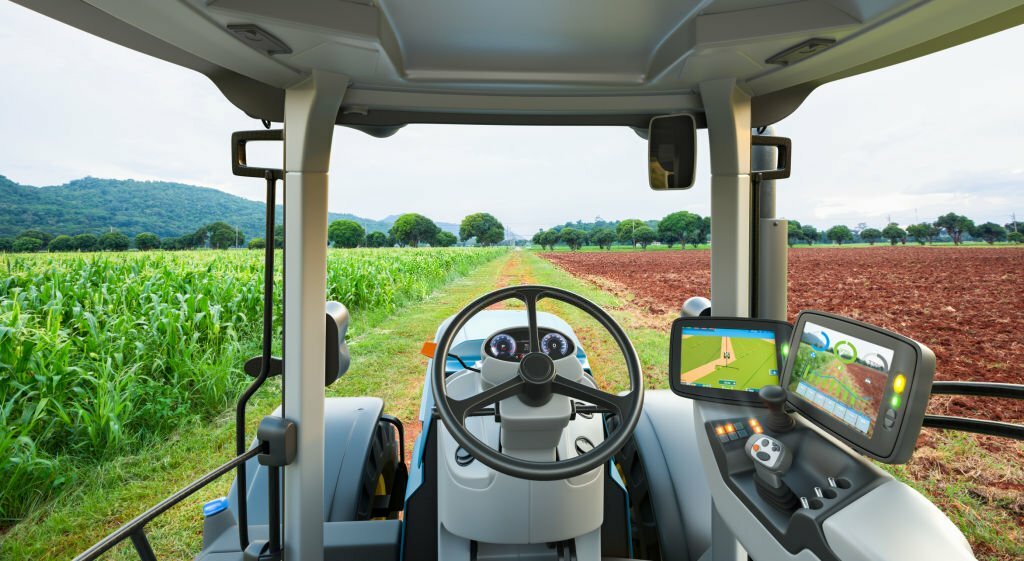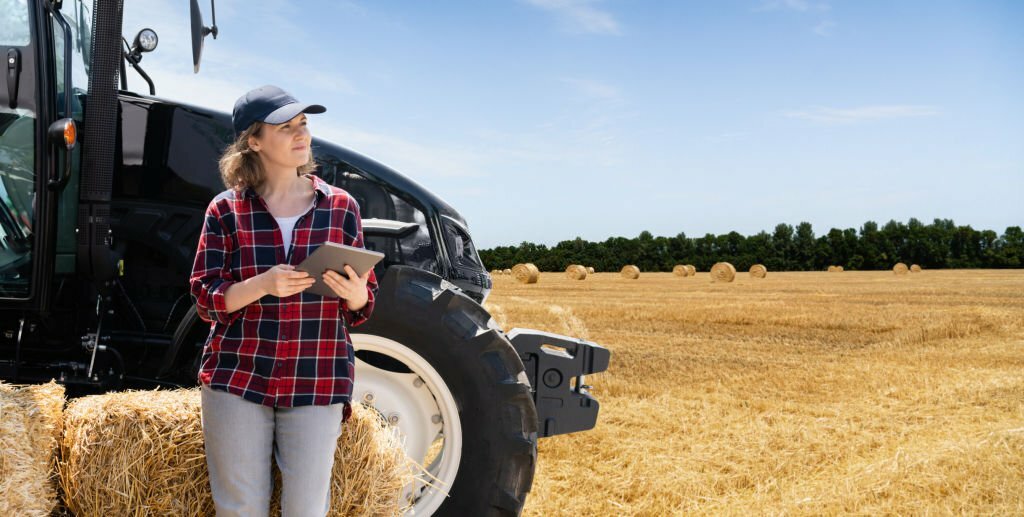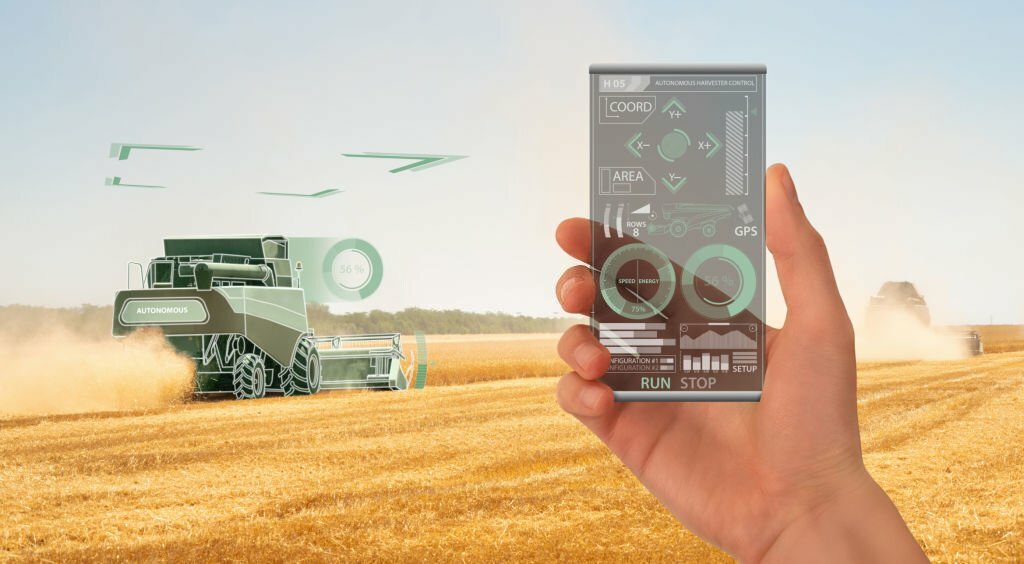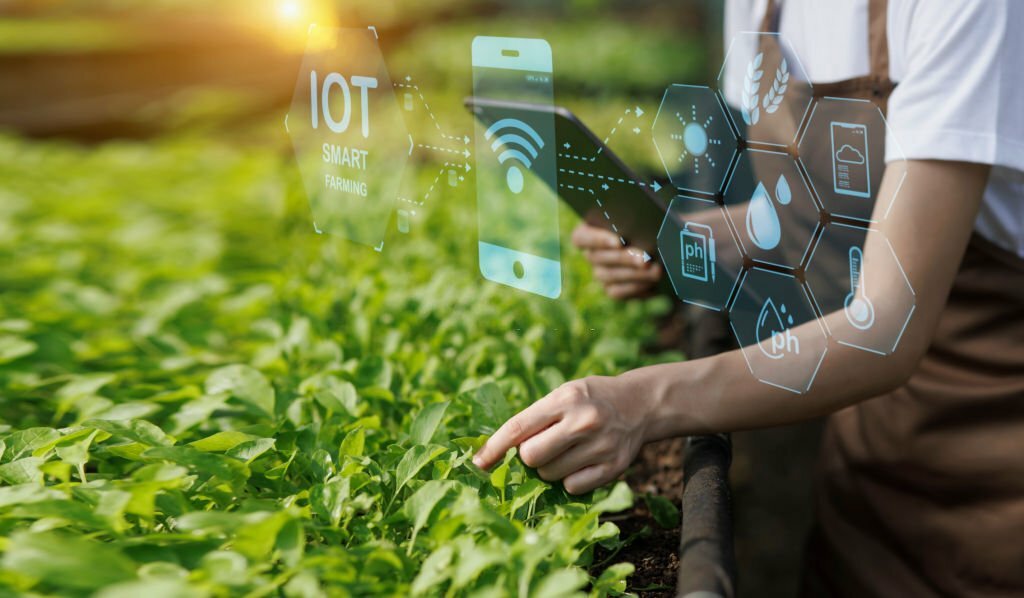In the ever-evolving landscape of modern agriculture, the integration of cutting-edge technology has played a pivotal role in revolutionizing the efficiency and productivity of harvesters. With a pressing need to meet the demands of a growing global population, farmers and agriculturalists have turned to innovative solutions to optimize crop yield, streamline processes, and minimize resource wastage. From the incorporation of automation and robotics to the utilization of data-driven systems, the contemporary advancements in harvesters have significantly transformed the dynamics of farming operations.
Automation: Redefining Speed and Precision

The integration of automation technology within harvesters represents a monumental leap forward in modern agriculture. By significantly reducing the reliance on manual labor, this advancement has transformed the efficiency of harvesting operations. Automated harvesters, outfitted with state-of-the-art sensors and robotic arms, demonstrate remarkable proficiency in discerning ripe produce, delicately picking them, and categorizing them based on predefined criteria. As a result, the integration of automation not only minimizes potential errors but also accelerates the pace of harvesting, guaranteeing a timely and streamlined collection of crops. This pivotal development has not only increased overall productivity but has also freed up labor resources, enabling farmers to focus on higher-value tasks critical to the success and sustainability of their agricultural endeavors.
Precision Farming: Optimizing Resource Utilization

The integration of precision farming technologies has become a cornerstone in augmenting the operational efficiency of harvesters. Leveraging the assistance of Global Positioning System (GPS) and Geographic Information System (GIS) systems, farmers can conduct meticulous analyses of the diverse soil properties, moisture levels, and nutrient distribution patterns prevalent across their fields. This data-centric approach has facilitated the adoption of customized cultivation strategies, granting farmers the ability to fine-tune the utilization of fertilizers, water, and other crucial resources. By precisely calibrating the allocation of these resources, harvesters can achieve optimal crop yield while simultaneously mitigating the environmental impact associated with traditional farming practices. This has not only led to a marked increase in resource efficiency but has also reinforced sustainable agricultural methodologies, ensuring the preservation of ecosystems and the long-term viability of farming enterprises.
Data-Driven Systems: Enhancing Decision-Making

The seamless integration of data-driven systems has not only disrupted but revolutionized the agricultural sector, offering farmers a wealth of valuable insights crucial for informed and strategic decision-making. Equipped with an array of sophisticated sensors and monitoring devices, modern harvesters are adept at capturing real-time data on critical aspects such as crop health, precise yield estimates, and prevailing environmental conditions. This wealth of data is subsequently channeled through advanced analytics software, equipping farmers with the capability to proactively plan their planting schedules, optimize their harvesting timelines, and allocate resources judiciously. By harnessing the power of data-driven intelligence, harvesters can adeptly adapt to the dynamic changes in the environment, ensuring that optimal harvesting conditions are maintained to secure the highest possible yield and quality. This transformation has not only elevated the precision and efficiency of farming operations but has also instilled a proactive and adaptable ethos within the agricultural landscape, ensuring resilience and sustainable growth in the face of evolving challenges.
Looking Ahead: The Future of Harvesting Efficiency

With the relentless advancement of technology, the future trajectory of harvesters presents a promising outlook. Anticipated innovations, including the integration of machine learning, artificial intelligence, and predictive analytics, are poised to revolutionize harvesting efficiency, granting farmers the capacity to attain unprecedented levels of precision, productivity, and sustainability. Through the incorporation of intelligent algorithms and predictive models, harvesters are expected to proactively predict potential challenges, proactively combat crop diseases, and optimize overall crop management practices. Furthermore, the ongoing development of environmentally conscious harvesting solutions is projected to foster a shift towards sustainable agricultural practices, effectively curbing the ecological footprint associated with traditional farming methods. This holistic approach not only underscores the commitment to preserving natural resources but also underscores the vital role of agriculture in ensuring a consistent and reliable food supply for an ever-growing global population.
As the world progresses into the foreseeable future, the agriculture industry is experiencing a transformative shift propelled by the integration of emerging technologies. Harvesters and precision agriculture systems, equipped with AI tools and machine learning capabilities, are revolutionizing the farming process, creating unparalleled efficiency and benefits for farmers. The amalgamation of cloud computing and data management systems is propelling the next generation of farming towards unprecedented levels of control and automation, allowing for the optimization of energy and resources. Alongside these advances, the integration of quantum computing and other emerging technologies is opening new frontiers in the field of agriculture, promising a future where the limitations of regular computers are no longer a concern. However, with this development comes the challenge of ensuring cyber security and the management of vast amounts of data in a technologically driven environment. Nevertheless, the potential for augmented reality, speech recognition, and other tech trends to further enhance the industry’s productivity and sustainability remains a tantalizing prospect. As the world embraces these technological marvels, it is crucial to balance their adoption with the preservation of the environment and the careful consideration of the ethical implications they may entail.
In conclusion, the ongoing technological advancements in harvesters are reshaping the landscape of modern agriculture, fostering a more efficient, sustainable, and productive approach to food production. With continued research and development, the integration of advanced technologies is set to redefine the capabilities of harvesters, paving the way for a more resilient and sustainable agricultural future.
Discover groundbreaking harvester innovations at the Boom and Bucket website! Explore how advanced technology is revolutionizing efficiency in the agricultural sector. Stay informed about the latest developments in harvester technology and elevate your farming practices. Visit us now for a comprehensive insight into efficient harvesting.

